Bibleless Nations
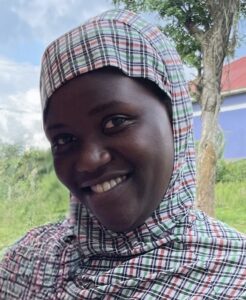 In the 1880s, the governor of Southern Sudan was driven from his country into Uganda. He and his soldiers were given protection from the British in return for their service. This group of Muslim soldiers and their descendants eventually became known as the Nubi people. In the 1890s, the British awarded the Nubi soldiers land in Kenya.
In the 1880s, the governor of Southern Sudan was driven from his country into Uganda. He and his soldiers were given protection from the British in return for their service. This group of Muslim soldiers and their descendants eventually became known as the Nubi people. In the 1890s, the British awarded the Nubi soldiers land in Kenya.
There are an estimated 20,000-40,000 Nubi people living in Uganda today and about 16,000 living in Kenya. The primary language is Nubi, a language heavily influenced by Arabic. There is still not a standardized writing system, though the work is in progress.
Although most Ugandan tribes work as farmers, the Nubi are employed as soldiers, drivers, merchants, or craftsmen. The Nubi staple diet is posho (thick corn flour porridge) in the north, and matoke (boiled and mashed green plantains) in the south. They eat a little goat or chicken when able to afford it. For dress, they have largely adopted a western style of dress, except for Jummah Day (Friday) when they wear the kanju, a Muslim robe.
Despite living in Uganda, a nation that primarily practices some form of Christianity, 99% of the Nubi people are Sunni Islam. Their beliefs date back to the early 1800s, when the Ottoman empire conscripted their ancestors to serve as soldiers and forced conversion to Islam. Islam is a foundational part of Nubi identity. Men are required to attend “Jummah”, the Muslim weekly service and prayer. Some will attend ancestor shrines after attending the Mosque, and some will visit a witch doctor, but they continue to claim Islam as their primary belief. Most East African tribes experience relatively peaceful coexistence of Muslims and Christians. However, when a Nubi accepts Christ, he is often exiled from the Nubi community. (See Pedal to the Medal in this issue for news about a Nubi Bible.)
Winter 2024-25
The Teke are one of over five hundred groups of Bantu people. They live in the central plateau of Africa where they grow maize, millet, and tobacco. The tribe’s name comes from their occupation of trading; teke means “to buy.” They also hunt and fish.
Teke traditional dress is fashioned from the dried leaves of rafia, a native palm tree. Kaolin, a white clay commonly called china clay, is used for face and body painting.
The primary religion is reportedly Christianity, but the Teke also practice their African traditional religion involving communication with spirits and ancestor worship. Carved fetish figurines serve as daily protection and as an aid to success. When you see a carved wooden mask from Congo, it is most likely Teke. These masks are used in traditional dancing ceremonies at weddings, funerals, and initiations. These masks also denote the wearer’s social and political identity. The tribal chief is the religious leader. As such, he is a highly respected decision maker. He keeps the peace within the tribe and performs traditional ceremonies to ensure its safety.
There are numerous groups of Teke, and each speaks a distinct language. Very few of these languages have a Bible, though some have Bible portions and translation work has begun in others. The Nzikou, and Tsaayi Teke, with a combined population of 451,000, have no Scripture.*
*Joshuaproject.net
Fall 2024
146,000 Roglai people (whose language is also called Roglai) live in the Vietnamese coastal provinces of Khanh and Ninh Thuan. Evangelical Christianity among this people group is estimated at 12%. Due to persecution, an accurate estimate of evangelistic churches is difficult to assess.
Since there is no Roglai Bible, pastors and leaders study the Vietnamese Bible and speak its truths to the congregation in Roglai. They long for a faithful Roglai Bible. A church will not be strong without it. A group of capable young men are forming a translation team to address this need. Some team members will translate; others will do a back translation for accuracy’s sake. Some older men are wisely included as counselors.
The missionary involved has participated in these men’s ministry training and preparation for the translation work. He is confident that they are godly, capable men of good character. The missionary’s involvement will be as an adviser only, as he believes God would have the work be led and completed by nationals. They are beginning with a Gospel tract before proceeding with the Gospel of John.
God is raising up His army of Light Bearers from many places. In this case, it is an indigenous undertaking. Countries such as Mexico, Korea, and the Philippine Islands are also sending out faithful witnesses. Will you pray for the Roglai translation team?
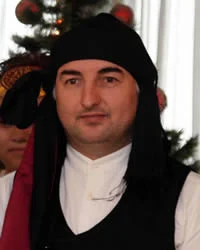
The Pontic Greeks quite possibly heard the Apostle Paul during his missionary journeys. This people group considers themselves descendants of the Argonauts, who set sail looking for gold and silver. Because of their desire to seek treasure in other lands, this group of Greeks eventually settled in Northeastern Turkey with the majority settling around the Black Sea.
During World War I, when the country underwent an ethnic cleansing, almost 250,000 Pontics were able to flee back to Greece. However, when they arrived, those that lived there could not understand their language. It had evolved into words and sounds that could not be understood because of the influence of the nations that had surrounded them before their dispersal. Today, this dialect of the Greek language is considered endangered as their descendants become more assimilated in the regions in which they live. Yet the Pontics want to keep their language and traditions alive. They try to pass down their traditional poems, songs, dress, and dances to their children. However, their brightly colored traditional dress cannot cover their spiritual darkness.
Though many profess to be Christians, they have no true knowledge of the Gospel. Some practice Greek Orthodox traditions, and others have converted to Islam. Because there is no Scripture in their language, a people who may have once been exposed to the truth are now living in spiritual darkness.
The Wasa face many challenges. The areas where gold is mined are damaged by erosion that causes flooding and ruins the land for farming. Also, many Wasa living in poverty mine gold illegally. These small, unregulated operations use chemicals and heavy metals that contaminate drinking water.
A second challenge is the Wasa language. Some of the older Wasa fear its demise. In an effort to modernize, children are punished for speaking their language in school. “English is a global language. Practice it now!!!” is written on at least one schoolroom wall.
Another challenge is the great spiritual need of the Wasa. Although their primary religion is listed as Christianity, its form is Non-Evangelical Protestantism which focuses more on social issues than a personal faith in Jesus Christ. Only Biblical teaching can correct this erroneous teaching, but there is no Bible in Wasa. A translation has reportedly begun. Will you pray for the Wasa and for those that are translating God’s Word for them?
Spring 2023-24
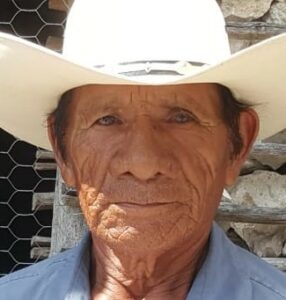 Ten thousand Pame live in San Luis Potosi, a state of central Mexico. They call themselves Xiúi meaning “indigenous.” The Pame cultivate maize, beans, squash, and chili which constitute their main diet. However, the soil is poor and rocky and many Pame are migrant workers.
Ten thousand Pame live in San Luis Potosi, a state of central Mexico. They call themselves Xiúi meaning “indigenous.” The Pame cultivate maize, beans, squash, and chili which constitute their main diet. However, the soil is poor and rocky and many Pame are migrant workers.
Pame traditional religious beliefs in spirits, witches, and gods have mixed with Catholicism brought by the Spaniards. Pame call the Sun and the Catholic God by the same name. Likewise, they call the Moon and the Virgin Mary by the same name.
They need the truth found in God’s Word. But is it worth the time and toil of translating the Bible for a relatively small people group? Someone thinks so! And that is the rest of the story.
In 1980, BBTI graduate Rex Cobb began working in Bible translation among the Zapotecs in Oaxaca, Mexico. The people of his remote Zapotec village were suspicious of Americans, and it became increasingly difficult to minister among them. Bro. Cobb began to pray for Mexican nationals to assume the work of reaching their own indigenous people. In 1987, Rex learned of a Bible institute in the mountains of Chihuahua, Mexico, which was beginning to train students to do just that. God had answered his prayer!
He moved to northern Mexico and for four years taught the skills he had learned at BBTI. The first class had thirty-five students. Bro. Rex later moved on to church planting, and as the years passed, he wondered if he had made the right decision to leave the work with the Zapotecs and invest his time in training Mexican missionaries. Recently the Lord confirmed that yes, it was the correct decision.
Last March, at a mission conference in Gainesville, Texas, Rex met Dr. Neftalí Santos MD, a Mexican missionary to the Pame people of the state of San Luis Potosi. Neftalí taught the Pame people to read and is directing them as they translate the Bible into Pame. Neftalí studied linguistics and Bible translation at the Instituto Bíblico Maranatha in the city of San Luis Potosí. His teacher? Jorge Rocha, one of the students in Rex’s first class at the Bible Institute in Chihuahua! What a joy to learn how God has used Dr. Jorge Rocha to challenge and train dozens of men in the work of missions. Wondrous are God’s doings in our eyes!
God has a plan to reach every tribe and nation with the Gospel. He thinks it is worth the time and toil to translate the Bible for a relatively small people group. Neftalí thinks it is worth it and so do we! We are grateful He lets us get involved and has even let us see some far-reaching effects of BBTI’s ministry.
Fall 2023

Linguistics
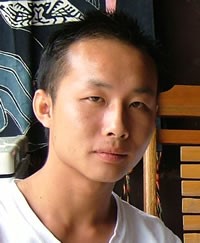
Standing before you is a famed Drum Tower, a remarkable architectural achievement held together with groove joints instead of nails. As you admire the abundance of carvings and paintings on the multi-storied structure, music plays and a traditional song and dance begin. You are at a festival in one of the few Dong villages open to tourism.
Early mission work among the Dong began in 1910-1930 but was halted by communism when it was introduced in 1949. However, the Gospel never took a firm hold. Today only 1% of the Dong people claim Christianity. The 2020 census numbered the Dong at 3,495,993. Roughly half of them is Northern Dong and the other half is Southern Dong. While the customs and beliefs of the two groups are similar, their languages are different. The Northern Dong have no Bible.
The Dong practice Chinese folk religion. They worship their ancestors and believe in spirits and ghosts. Dong shamans use drums during rituals to appease any offended spirits.
The Dong have lived in a subtropical area of south-central China for generations. They cultivate rice, wheat, maize, sweet potatoes, cotton, and soybeans. Some raise pigs and hens. Under communism, the Dong’s standard of living has increased through the building of a solid rural infrastructure and improved education and health care. However, the Dong do not know how they can have eternal life through Jesus.
Spring/Summer 2023
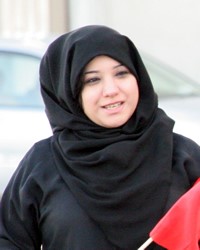
Creative Commons
The Kingdom of Bahrain is an archipelago nation located in the Persian Gulf off the coast of Saudi Arabia. Most Bahraini live on the main island. The town people usually live in apartments or houses made of cement and lime brick. The villagers live in thatched huts. The arid climate allows some dairy and vegetable farming, but most of their food is imported.
Bahrain has diversified its petroleum and commerce-based economy to include manufacturing, tourism, and international banking. This prosperous nation has a rich Middle Eastern heritage. Its people enjoy a relatively high living standard as well as free education and medical care.
Over 763,000 Bahraini Arabs are living in deep spiritual darkness. Islam is the state religion, and most Bahraini are either Shi’ite or Sunni Muslims. The Sunni monarchy rules over the Shia majority. Resulting dissension between these two Islamic sects led to the removal of political and civil rights. Due to western influence, the Bahraini are less strict than mainland Arabs. However, Islam is their culture. While they are more open to many western ideas, Christian beliefs are deemed pagan.
Arabic is the official language of Bahrain, but the people primarily speak Bahrani Arabic. Linguists have developed a Bahrani Arabic alphabet, yet there is no Bible in this language. Will you pray for the Bahraini?
Winter 2022-23
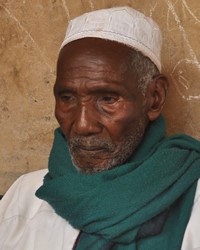
There are forty-four subgroups of the Jula, a sub-Saharan people, one of which is the Odienne Jula. The majority of the 183,000 Odienne Jula live in the northwest town of Odienne, Côte d’Ivoire which is an historic trading center. Odienne lies within the savanna region of Côte d’Ivoire where the soil is fertile. People make their living as merchants, craftsmen, and farmers. Rice is grown in the region and cashews have recently become an important cash crop (2019 Indiana University Press).
The Odienne Jula are resistant to the Gospel because they are both religious and clannish. They are 95% Muslim but also adhere to much of their ethnic religion. Ethnic religions consist of rituals, charms, and involvement in spirit worship which are entrenched in the people due to strong cultural and generational ties. The Odienne Jula are organized by clans, the lineage of which is traced through the men. Rather than viewing themselves as individuals, they find their identity in their clan. They guard against anything that might divide or weaken their kinship ties.
This unreached people group speak Wojenaka, a language also spoken by 18,000 Wassulu people, also of Côte d’Ivoire. It is reported that a Bible translation has begun; however, there are no scriptures in Wojenaka. Translators need prayer to overcome obstacles and wisdom to produce a faithful translation.
Fall 2022
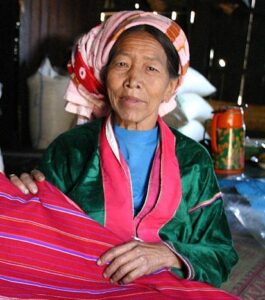
Among the mountains and valleys of the Shan state of Myanmar live the Golden Palaung. Over 200,000 Golden Palaung speak the Shwe dialect of Palaung, which comes from the Mon-Khmer language family.
The Palaung are able to grow a number of crops in their area and they trade for additional foods with their pickled tea (also called laphet). This exclusive novelty is made by fermenting tea leaves over a long period of time and then preparing them to be eaten as a salad.
In addition to their special pickled tea, their traditional houses are quite distinct, and very impressive. They are raised off the ground and can house as many as six families. Some houses are nearly one hundred feet long! In spite of all this room, there is little if any division for each family in the house. Consequently, it is not surprising that single family dwellings are now becoming the norm.
Most Golden Palaung practice Theravada Buddhism. In addition, they continue to practice their traditional animistic religion. A distinction in their animistic belief is that of “nat worship.” Nats are the spirits of inanimate objects. If the people experience hardship, they believe it is because the nats need to be appeased by offering items such as betel or tobacco. Offerings are also given by a shaman at ceremonies during marriages, births, and deaths.
Summer 2022
The 2000 census lists 45,000 ethnic Phunoi living in north-central Laos. Phunoi is one of eighty-four languages spoken in Laos. It is a Tibeto-Burman language which reflects the Burmese rule in Phunoi history. Phunoi is classified as a Loloish language which reflects a Chinese origin.
Experts believe there are 240 ethnic groups in Laos. In 1981, they were officially divided into five groups according to language. However, the former three group system is still commonly used, and it divides according to geographic location: lowland, hillside, and mountaintop. The Phunoi belong to the mountaintop group. The mountain forests furnish animals for hunting and food for gathering. Rice and corn are grown by the slash-and-burn method.
The official name of the Phunoi changed to Sinsali in the 1990s. The literal meaning of phunoi is “little people,” and Laotians now use this word in a disparaging manner. All tribal people are considered a low class of society and are referred to as phunoi.
Though many Phunoi have embraced Buddhism, the majority practice ethnoreligion. Ethnoreligion combines animism and ancestor worship. The spirits of animism are placated for favor in growing food or restoring health. The spirits of ancestors are invoked for protection and guidance. There is no Phunoi Bible to tell this people the story of the one true Creator God.
Located in the heart of the second largest island of the Philippines is a tribal people who cling tenaciously to their ancient customs and traditions. The Bagobos are a people steeped in ethnoreligion. They combine spirit worship, ancestral worship, and nature worship into a religion that is strict in ritual and full of fear. They are fiercely territorial, suspicious of outsiders, and very resistant to the efforts to assimilate them into the other cultures and languages around them. They believe to do so is to deny their religion and entire way of life.
The Bagobo are one of the largest groups of indigenous people of southern Mindanao. Historically a warring tribe, the Bagobos raided neighboring villages and offered human sacrifice to their deity, Pamulak Manobo, until the practice was forbidden under Spanish rule. They are largely agricultural, and rice is the staple of their diet. This diet is supplemented with hunting and fishing. The planting, cultivating, and harvesting of rice is deeply tied to religious rituals. Planting coordinates with the movement of the stars, hoping for the good-will of their god of the growing season. During harvest, the leader of their tribe (the Datu) will give an offering to the “spirit of the harvest.”
The Bagobo speak their own distinct dialect. It is an unwritten language with no Scriptures, therefore the
80,000-100,000 Bagobo souls are without God’s message.